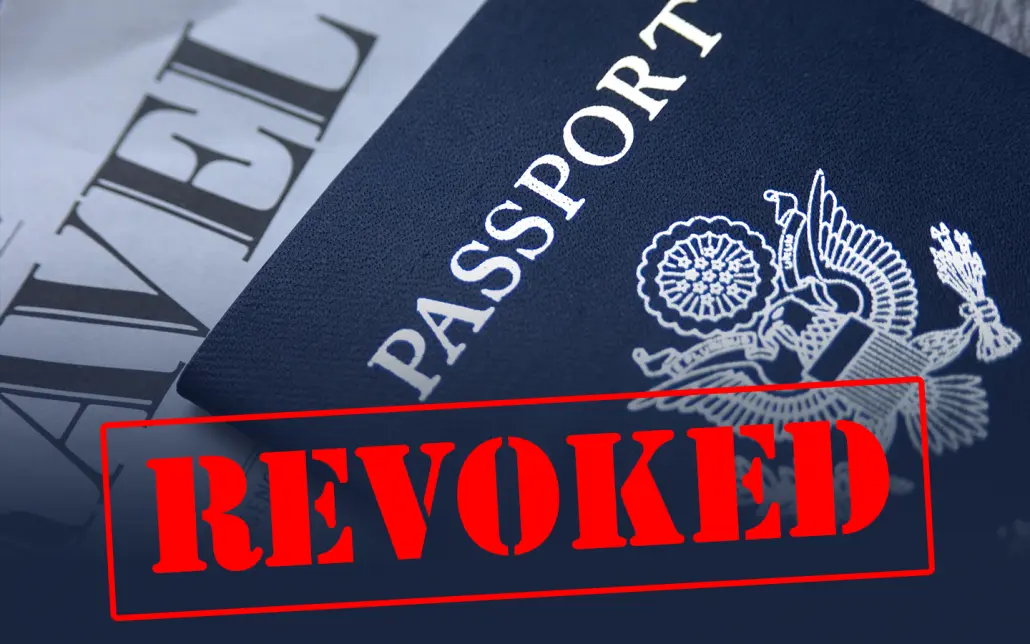What to do if IRS revokes passport

Traveling internationally for work or leisure is often a necessity or a well-deserved break. Imagine the shock of hearing, “Sorry, you can’t go through. Your passport is denied.” You could find yourself in this exact predicament if you have tax debt. The IRS has the power to revoke your passport, but there are steps you can take to protect yourself.
Understanding “Seriously Delinquent” Tax Debt
The first step to safeguarding your passport is understanding what qualifies as “seriously delinquent” tax debt. The IRS defines this as federal tax debt over $62,000, including penalties and interest. If you are personally liable, this can apply to individual income taxes, trust fund recovery penalties, and even business taxes.
The IRS and the U.S. Department of State
The IRS partners with the U.S. Department of State to enforce passport revocations. It’s a powerful connection that can impact your ability to travel.
The Notice CP508C: Your Only Warning
The IRS will notify you of your seriously delinquent tax debt via Notice CP508C. This is the only heads-up you will receive. Importantly, your Power of Attorney must get a copy of this notice. If you miss this crucial notification, you risk having your passport revoked or its renewal denied.
Imagine standing in line at customs for hours, only to be turned away and sent back home. This is a real possibility if you overlook Notice CP508C.
Steps to Reversing the Certification
Thankfully, there are ways to address this issue and regain your passport. Here’s how:
Achieve Absolute Compliance
You must ensure that all your tax returns are filed. The IRS requires complete compliance before they will consider reversing the certification.
Resolve Your Tax Debt
It would help if you resolved your tax debt formally. This means negotiating a resolution that the IRS accepts. Options include:
– An installment agreement
– An accepted Offer in Compromise
– A Partial Pay Installment Agreement
Each solution involves negotiating terms that satisfy the IRS and reduce your tax burden to manageable levels.
Expedited Reversal for Immediate Travel
If you need to travel urgently, you can request an expedited reversal. This process can shorten the usual 30-day period to about 9–16 days, but it is not guaranteed. To qualify, you must follow specific rules and provide the required documentation to convince the IRS of your immediate travel needs.
Protecting Your Freedom
Losing your passport due to tax debt is more than just an inconvenience—it’s a loss of your constitutionally guaranteed freedom to travel. Therefore, it’s crucial to understand the IRS’s passport revocation program and know the steps to take if your passport is at risk.
Proactive Measures
To avoid this situation altogether, consider these proactive measures:
– Regularly Check Your Tax Status: Keep an eye on your tax obligations and ensure all returns are filed and paid on time.
– Engage a Tax Professional: If you have significant tax debt, a tax professional can help you navigate the complexities of resolving it.
– Respond Promptly to IRS Notices: Never ignore any correspondence from the IRS, especially notices related to tax debt.
Conclusion
The IRS’s ability to revoke passports is a powerful tool for enforcing tax compliance, but it doesn’t have to spell the end of your travel plans. By understanding what constitutes seriously delinquent tax debt, staying vigilant about IRS notices, and knowing how to resolve your tax issues, you can protect your passport and your freedom to travel.
Remember, addressing your tax debt promptly and working towards a resolution with the IRS is the best way to ensure you can travel without interruptions. Don’t let the IRS dictate your ability to travel—take control of your tax situation today.



